NAACL Officers 2013
Officers
| Chair | Chris Callison-Burch | Johns Hopkins University | 2012-2013 |
| Secretary | Anoop Sarkar | Simon Fraser University | 2012-2013 |
| Treasurer | Joel Tetreault | Nuance Communications | 2013-2014 |
| Past Chair | Rebecca Hwa | University of Pittsburgh | 2012-2013 |
Executive Board
| Board Member | Emily M. Bender | University of Washington | 2012-2013 |
| Board Member | Mona Diab | George Washington University | 2012-2013 |
| Board Member | Katrin Erk | University of Texas at Austin | 2013-2014 |
| Board Member | Julia Hirschberg | Columbia University | 2013-2014 |
Nominating Committee
| Hal Daume III (Chair) | University of Utah | 2008-2009 |
| Suzanne Stevenson | University of Toronto | 2008-2009 |
| Chris Brew | Ohio State University | 2009-2010 |
| Ted Pedersen | University of Minnesota, Duluth | 2009-2010 |
| Kristina Toutanova | Microsoft Research | 2010-2011 |
| Owen Rambow | Columbia University | 2009-2010 |
For the elections to be held in 2013, Christopher Manning (2011-2012), David Chiang (2011-2012) and Dan Gildea (2011-2012) will join the nominating committee.
Ex-Officio Board Members
| Graeme Hirst | University of Toronto | ACL Treasurer |
Chair (2012-2013) | Chris-Callison Burch | Johns Hopkins University
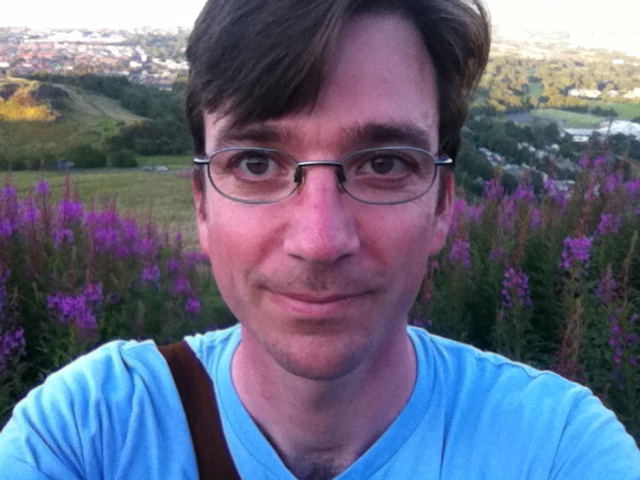
Bio
Chris Callison-Burch is an Associate Research Professor at the Center for Language and Speech Processing (CLSP) at Johns Hopkins University. He received his PhD from the University of Edinburgh’s School of Informatics in 2008 and his bachelors from Stanford University’s Symbolic Systems Program in 2000. His research focuses on statistical machine translation, crowdsourcing, and broad coverage semantics via paraphrasing. He has contributed to the research community by releasing open source software like Moses and Joshua, and by organizing the shared tasks for the annual Workshop on Statistical Machine Translation (WMT). He is on the editorial board of Computational Linguistics, and he is doing pretty well on the ACL Anthology Network leaderboard.
Candidacy Statement
The past two years as a NAACL executive board member has given me an excellent understanding of how the organization works, and what its role is beyond maintaining a high-caliber scientific conference. If I am elected chair, I will continue past initiatives like funding the NAACL summer school at Johns Hopkins University and doing active outreach to South America. I will also put forward my own agenda. I will improve reviewing by liaising with the Softconf developers to create single logins for every reviewer, and to specially treat resubmissions of rejected papers by giving current reviewers access to the previous set of reviews and to author responses. As a result of my experience digitizing videos for the past decade of the CLSP seminar series, I would like to begin an initiative to create a NAACL video archive that records the talks given at our conferences. I will give NAACL’s support for the new journal initiative. Finally, I will work to ensure that our conferences continue to be a success. (I am taking my campaign to the tweets! You can follow my outlandish campaign promises on Twitter @ccb).
Secretary (2012-2013) | Anoop Sarkar | Simon Fraser University
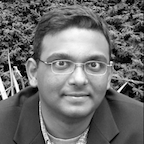
Bio
Anoop Sarkar is an Associate Professor at Simon Fraser University in British Columbia, Canada where he co-directs the Natural Language Laboratory (http://natlang.cs.sfu.ca). He received his Ph.D. from the Department of Computer and Information Sciences at the University of Pennsylvania under Prof. Aravind Joshi. His research areas are statistical parsing and machine translation (exploiting syntax or morphology, or both). His interests also include formal language theory and stochastic grammars, in particular tree automata and tree-adjoining grammars. He would like to decipher the Voynich manuscript before Kevin Knight does. For his service to NAACL and to other ACL conferences please see his home page.
Candidacy Statement
There are a few things I would like to get done as Secretary of the NAACL Board.
The naacl.org web-site needs to be updated, not only to look better, but to be more functional as well. It should function as a means for the NAACL membership to interact with and provide feedback about various initiatives to the NAACL board. We should archive for posterity useful information about all previous NAACL conferences at naacl.org.
I attended ACL 1993 as an undergraduate student on a Don Walker scholarship that funded my travel from India to Columbus. Having benefitted from that experience, I believe the NAACL board should encourage the next generation of NLP/CL researchers, in particular by supporting NAACL summer schools, the CL Olympiad (NACLO) and small regional workshops where high school and undergraduate students can be exposed to NLP.
I would like the NAACL board to communicate in a friendly, readable way with the NAACL membership. We also need to improve the bidding process for NAACL HLT venues by increasing the number of high quality bids.
Treasurer (2013-2014) | Joel Tetreault | Nuance Communications

Bio
Joel Tetreault just started a new position at Nuance Communications as a Senior Principal Manager of Core NL in their Silicon Valley Research Lab. Previously he was a Senior Managing Research Scientist at Educational Testing Service. His research interests include discourse processing, grammatical error detection, automated essay scoring, anaphora, and dialogue systems. He received his PhD at the University of Rochester and was a postdoctoral researcher at the University of Pittsburgh before joining ETS. He has co-organized the Building Educational Applications workshop since 2008, served as an Area Chair for NAACL 2010, Session Chairs for NAACL 2010 and 2011, and Exhibits Chair for NAACL 2012.
Candidacy Statement
The NAACL treasurer monitors and reports on the finances of the organization, and provides feedback to the NAACL board on which practices have been successful or not. The person appointed to this position should have experience in managing budgets and be highly organized. One of my main duties as a managing research scientist at Educational Testing Service the last three years was managing the budgets for our NLP Initiative as well as individual research projects. Additionally, I believe my organizational background with co-leading the Building Educational Applications workshop for the last 6 years, and serving as Area, Exhibits and One Minute Madness Chair the last few years at NAACL, as well as maintaining the primary conference calendar for our NLP/CL community at large since 2004 (http://www.cs.rochester.edu/~tetreaul/conferences.html), make me uniquely qualified for this position.
In addition to the above duties, the Treasurer is an active member of the Board. Over the last decade, the field of Computational Linguistics has grown considerably: there are more universities and companies with CL groups and researchers, and researchers from all corners of the world attending and submitting to conferences. With the number of major conferences staying roughly the same year after year, the competitiveness has increased thus putting more pressure on reviewers to provide high quality reviews in a timely fashion. In my years reviewing and also serving as a chair for different conferences and workshops, many of the same people are repeatedly called upon to provide upwards of 6 and sometimes 10 reviews for a single conference, which is problematic when they are called upon to review for other conferences in the same time frame. In order to maintain the high quality of NAACL and associated workshops, I will 1) work to increase the number of capable reviewers such that all reviewers have a manageable load at any time, and 2) work to defining standards for reviewing such that papers in different tracks are reviewed in the same manner.
Past Chair (2010-2011) | Rebecca Hwa | University of Pittsburgh

Bio
Rebecca Hwa is an Associate Professor in the Department of Computer Science at the University of Pittsburgh. Her recent research focus is on multilingual processing and machine translation. Before joining Pitt, she was a postdoc at University of Maryland. She received her PhD from Harvard University and her B.S. from UCLA. She currently serves as the Past Chair of the NAACL executive board; she has been an area co-chair for NAACL/HLT (2007) and for EMNLP (2005,2008); and she has served on the editorial board of Computational Linguistics (2003-2005).
Candidacy Statement
My experience over the past two years as a member of the NAACL executive board has emphasized to me that our organization has many responsibilities in addition to maintaining a high quality scientific conference and supporting the NAACL summer school. I seek the opportunity to further serve NAACL as the chairperson of the executive board so to sharpen our mission of promoting cooperation with an increasingly broader set of related communities as our organization grows. Recently, the board has begun several exploratory programs such as the sponsorship of regional workshops, the Latin America Fund, and the student tutorial fund. If elected, I will work with the board to formalize and scale up the successful programs. I also strongly believe in our mission to encourage participation from students. While the NAACL summer school and the student research workshop are both successful programs that have received enthusiastic participant feedback, they reach a relatively small percentage of students. I would like to explore ways of reaching out to students from schools that do not have a strong computational linguistics presence. For instance, the board can help expand the community’s student friendly online resources. Finally, I will work with both the ACL executive board and the NAACL board to ensure the continued success of our conferences.
Board Member (2012-2013) | Emily M. Bender | University of Washington
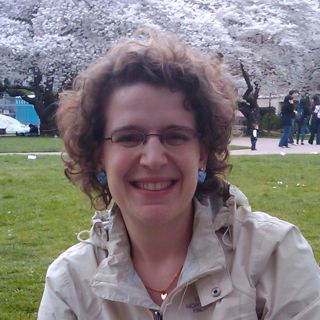
Bio
Emily M. Bender is an Associate Professor of Linguistics and an Adjunct Associate Professor of Computer Science and Engineering at the University of Washington, where she has been a member of the faculty since 2003. Her primary research interests are in multilingual grammar engineering and deep linguistic processing. She is the Linguistic Society of America’s delegate to the ACL and the faculty director of UW’s professional MS in Computational Linguistics. In 2009 she co-organized a panel session on computational methods in support of linguistic analysis at LSA and an NSF-sponsored workshop on Cyberinfrastructure for Linguistics.
Candidacy Statement
If elected to the NAACL board, I will focus my efforts on the three Rs: Reproducibility, Reviewing, and Reinvigorating interdisciplinarity in our field.
Reproducibility is the hallmark of scientific work. The recent move to allow publication of data and code in ACL-published proceedings is an enormous step towards reproducibility. NAACL-HLT should absolutely participate in this trend. However, there is still work to be done to make sure that the published resources are in fact useful in advancing the state of the art. For example, CC BY-NC-SA 3.0 is not the right license for every NAACL-HLT author. Furthermore, we have not yet worked out how to efficiently and effectively review these materials.
Reviewing is central to the quality of conferences and publications. The reputation of the NAACL-HLT conference elicits considerable effort on the part of reviewers, yet there is still room to improve the way that that effort is focused. A system of incentives to encourage reviewing that is fair, rigorous, and constructive could include feedback to reviewers by area chairs, co-reviewers and even authors as well as recognition for outstanding reviewing.
Reinvigorating interdisciplinarity: Solving big problems in human language technology requires both sophisticated algorithms and understanding of the domain of application of those algorithms. Yet, the integration of linguistic knowledge in our field falls short of this ideal. I will work towards bringing relevant Linguistics to NAACL in the form of tutorials, building connections to NASSLLI, and other means of making Linguistics accessible to HLT researchers.
Board Member (2012-2013) | Mona Diab | George Washington University
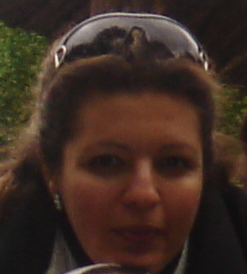
Bio
I joined the faculty of CS at the George Washington University in January 2013. Previously, I was a Research Scientist at the Center for Computational Learning Systems at Columbia University. I am co-founder of the Columbia Arabic Dialect Modeling group at Columbia (CADIM) I work on (lexical) semantics, Machine Translation, Arabic NLP, Multilingual Processing, Social computational Linguistics. I have been heavily involved in multiple organizational tasks such as workshops and tutorials. I currently serve as the elected president of ACL SIG Semitic, Secretary of SIGLEX, I am co-chairing NAACL 2012 Workshops. I am also serving as ACL 2012 area co-chair for Multilinguality. Before joining Columbia in 2005, I did my postdoctoral work with Dan Jurafsky at Stanford University. I earned my PhD in Computational Linguistics from UMD-College Park in 2003.
Candidacy Statement
I would like to serve on the board to serve the community in several aspects: 1. I am most concerned with the reviewing process and the duplication of effort this involved to date. I would be very interested in helping devise mechanisms of recycling and streamlining paper reviews in such a way that lightens the burden on the reviewers but also provides thorough feedback to authors; 2. I am interested in creating more links with students (especially women) by increasing their participation via dedicated sessions but also via creating more technical mentoring opportunities and potential job placement sessions; 3. I think we should strive to create solid links to the industrial world without losing sight of the theoretical underpinnings of computational linguistics, linguistics, and cognition by promoting sound scientific exploration that could have interesting implications on our understanding of natural language and the human mind. This goal can be achieved via papers/ opinion papers (which already exist) but also encourage panel discussions similar to workshop sessions; 4. I would like to help increase the visibility of NAACL beyond North America into Latin America and work on facilitating the visibility of NAACL in Africa and the Middle East; 5. NAACL is at the forefront of our conferences and I believe it should play a significant role in popularizing our science beyond the technical confines of our conferences/academia/industry to more lay venues allowing for more creative advertising for our field.
Board Member (2013-2014) | Katrin Erk | University of Texas at Austin

Bio
Katrin Erk is an Associate Professor in the Linguistics Department at the University of Texas at Austin. She received her Ph.D. from the Computer Science department at Saarland University in 2002. Her research area is lexical semantics, in particular distributional models and the characterization of word meaning in context. She has previously worked on corpus annotation with semantic information (using FrameNet) and semantic role labeling. She is currently on the editorial board of Computational Linguistics, and is secretary of SIGSEM as well as a member of the executive board of SIGLEX.
Candidacy Statement
To me, one of the central characteristics of computational linguistics is its interdisciplinarity. In its (actually quite short) history, computational linguistics has drawn on linguistics, psychology/cognition, artificial intelligence, formal logic, and machine learning, to name just a few of the related disciplines. I think we need to do our best to preserve this interdisciplinarity. It is a source of new ideas and new research directions, and it helps us get a better understanding of phenomena and a notion of what the bigger picture is. And frankly, it is fun. Concretely, one area I would focus on, if elected to the board, is reviewing: We should (once more) think about how our reviewing process can best identify high-quality papers that are interdisciplinary and off the beaten track. Another area where we can foster our interdisciplinarity is the conferences: prodding people to submit tutorials and workshops that bridge disciplines, and continuing to invite plenary speakers from adjacent disciplines.
Board Member (2013-2014) | Julia Hirschberg | Columbia University
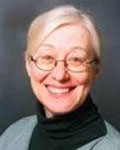
Bio
Julia Hirschberg is Professor and Chair of the Department of Computer Science at Columbia University. She does research in prosody, spoken dialogue systems, and emotional and deceptive speech. She received her PhD in Computer Science from the University of Pennsylvania in 1985. She worked at Bell Laboratories and AT&T Laboratories – Research from 1985-2003 as a Member of Technical Staff and as a Department Head, creating the Human-Computer Interface Research Department at Bell Labs and moving with it to AT&T Labs. She served as editor-in-chief of Computational Linguistics from 1993-2003 and as an editor-in-chief of Speech Communication from 2003-2006. She is on the Editorial Board of Speech Communication and of the Journal of Pragmatics. She was on the Executive Board of the Association for Computational Linguistics (ACL) from 1993-2003, have been on the Permanent Council of International Conference on Spoken Language Processing (ICSLP) since 1996, and served on the board of the International Speech Communication Association (ISCA) from 1999-2007 (as President 2005-2007). She is currently the chair of the ISCA Distinguished Lecturers selection committee, is on the IEEE SLTC, and serves on the board of the CRA-W. She has been active in working for diversity at AT&T and at Columbia. She has been a fellow of the American Association for Artificial Intelligence since 1994, an ISCA Fellow since 2008, and became an ACL Fellow in the founding group in 2012. She received a Columbia Engineering School Alumni Association (CESAA) Distinguished Faculty Teaching Award in 2009, received an honorary doctorate (hedersdoktor) from KTH in 2007, is the 2011 recipient of the IEEE James L. Flanagan Speech and Audio Processing Award and, also received the ISCA Medal for Scientific Achievement in the same year.
Candidacy Statement
My goal in joining the NAACL board would be twofold: a) to increase participation of researchers in speech and audio processing and in image and video in NAACL conferences and activities; and b) to increase the participation of women and minorities in computational linguistics. Since my PhD research at UPenn I have worked to broaden participation in NLP in terms of genre and ethnicity/gender. My own work has attempted to combine NLP with speech processing. I have attempted to increase participation of women and minorities in NLP since my PhD, but supporting diversity at Bell Labs, AT&T Labs, Columbia, and the broader community. I have also tried to broaden the scope of computational linguistics research to include interdisciplinariy work in the humanities and social sciences, as well as more practical engineering endeavors.